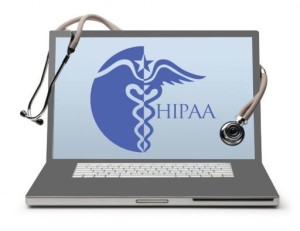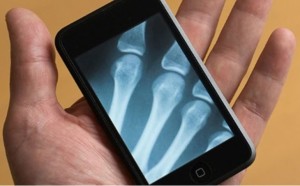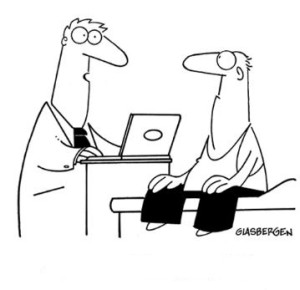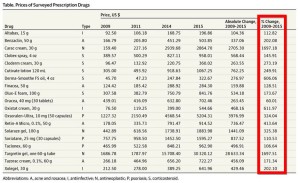- For real R&D innovation, blur the lines between pharma and academia: Panel (fiercebiotech.com)

"My team has created a very innovative drug, but we're still looking for a disease to treat with it."
Collaborating with academia has been de rigueur in the pharma world for years, but it's a different game these days. Recognizing that scientists on both sides of the divide can't be distant neighbors anymore, drugmakers and academics are invading each other's personal space, even working side-by-side in the same labs. They're learning unexpected things about their counterparts. And they're coming to terms with the inherent conflict between research for curiosity's sake and research for the market…optimistic about their collaborative efforts, regardless of the challenges...innovation isn't innovation unless it's put to use--i.e., taken to market--would be anathema to many academics…we try to find the best brains and give them the freedom to pursue their curiosity,"…"Basically many leading academics don't do well in structured programs."..."Our worlds are approaching each other more and more,"…and as the results of these collaborations begin to hit the market, that will give the very idea a boost…global trends will make collaborations an even more important part of working in the pharma business: "Now, with the internet, how information flows, how this generation moves across the globe, with the knowledge-driven economy, you'll see the boundaries between institutions blur even more."
- Lahey Clinic computer theft leads to $850,000 HIPAA settlement (modernhealthcare.com)
Lahey Hospital and Medical Center has agreed to pay $850,000 in a settlement with HHS' Office for Civil Rights to resolve alleged privacy and security violations stemming from the theft of a laptop computer with unencrypted patient records…health system also entered into a corrective action plan to address other privacy and security issues raised during the breach investigation. Lahey “impermissibly disclosed” electronic medical records of 599 individuals “for a purpose not permitted by the privacy rule” under the Health Insurance Portability and Accountability Act…Lahey had failed to meet a number of other HIPAA requirements, including not conducting “an accurate and thorough” security risk analysis, failing to assign “a unique username for identifying and tracking user identity” on the stolen computer and failing to “implement a mechanism to record and examine activity” on the computer.
- Annual Specialty Therapies Conference; Jan. 28-29 | Planet Hollywood | Las Vegas, NV (drugchannels.net)Effectively Managing Specialty Therapies a Forum for Payers 2016 (cbinet.com)
CBI’s Specialty Therapies Forum, the conference that brings together healthcare and pharmaceutical thought leaders to share best practices for managing specialty therapies…an opportunity to discuss not only strategies for managing the cost of specialty therapies, but also to provide the latest information and case studies dedicated to ensuring access and quality care in specialty benefit management. New to the agenda this year is a workshop dedicated to Specialty Pipeline Management.
Dialogue led by key thought leaders:
Avella Specialty Pharmacy | Blue Cross Blue Shield of Massachusetts | Blue Cross and Blue Shield of Minnesota | Blue Cross and Blue Shield of North Carolina | Denver Health Medical Plan | Fairview Specialty Pharmacy | Florida Blue | Gorman Health Group | Horizon Blue Cross Blue Shield New Jersey | Independent Health | NSHOA Cancer Centers in NY | Rutgers RWJ Medical School | Walgreens | Walmart | Widener University
- Pharmacy Week in Review: November 24, 2015 (pharmacytimes.com)
Mike Glaicar, Business Development: Pharmacy Times...(PTNN) This weekly video program highlights the latest in pharmacy news, product news, and more. (video)
- 7 cyber threats worse than PHI breaches (healthcareitnews.com)
Healthcare IT security: you have a bad reputation. When it gets down to healthcare there’s always a little chuckle about how bad they are…This year was among the worst in cybersecurity across the healthcare sector…On average, companies that got breached did not know it for 270 days and some had even been breached for seven years without knowing it…that two-thirds of those entities did not even discover the breach internally; it was pointed out to them, either by someone outside the organization or by the federal government...As bad as breaches are, however, there are other worse threats emerging that hospital CIOs, CISOs and IT departments should understand and prepare for.
- Ransomware
- DDoS (Distributed Denial of Services)
- Wiper attacks
- Intellectual property theft
- Straight theft of money
- Data manipulation
- Data destruction
- Easy on those apps: Mobile medical apps gain support, but many lack clinical evidence (modernhealthcare.com)
Mobile medical applications increasingly are being used by patients and consumers. Now healthcare providers are evaluating whether and how to work with their patients in tapping these apps. But they're proceeding cautiously because of the dearth of clinical evidence for many consumer apps, and because some developers may be misleading consumers by overstating their products' capabilities…I think we will be seeing an increase in scrutiny and enforcement by the FDA and the FTC…medical devices treading in the areas of diagnosis and treatment, for those I think we'll see increased enforcement...healthcare providers, a major factor driving that adoption is the shift to value-based payment, which creates a powerful incentive to keep patients healthier and reduce costs by avoiding unnecessary hospitalizations and emergency department use…As with the introduction of any new clinical-care process, there are safety issues…We're going from a situation where we had no data to one where we probably have more data than we need…mobile apps can offer clinical benefits, particularly when used in a structured healthcare program…Healthcare lawyers caution that providers run a variety of legal risks in using mobile apps with patients. “If the patient brings in a bunch of stuff, if you rely on it and it's wrong, it's a problem”…“But if you ignore it and it's right, it's a problem. You're damned if you do and damned if you don't.”
- Apple Watch used to study epileptic seizures (baltimoresun.com)Johns Hopkins EpiWatch: App and Research Study (hopkinsmedicine.org)
For the 2.5 million people living with epilepsy… medications can help control their seizures — most of the time. But some suffer unpleasant side effects from the drugs. And a few remain at risk of death…Researchers at the Johns Hopkins University hope to help those with the neurological condition by collecting information about their seizures through their…Apple Watches…"Physicians often ask patients to record their seizures, but that can be hard, especially when a patient loses consciousness," said Dr. Gregory Krauss…who is working on the program, named EpiWatch…collects data that help researchers better understand epilepsy, while helping patients keep a more complete history of their seizures," he said…The data could not only help doctors adjust an individual's treatment to make it more effective and less burdensome, but could also help...counter sudden unexpected death, a danger some face from seizures.
- Doctors’ use of computers during appointments leaves patients less satisfied (reuters.com)
Doctors who entered data into computerized health records during patients' appointments did less positive communicating, and patients rated their care excellent less often…Many clinicians worry that electronic health records keep them from connecting with their patients…doctors who used the computer more also spent more time correcting or disagreeing with patients…Doctors who spent more time using the computer spent less time making eye contact with patients and tended to engage in more “negative rapport building,” correcting patients about their medical history or drugs they’ve taken based on information in the electronic record…That’s not necessarily a bad thing…Doctors who spend most of the time looking at the computer may miss out on an emotional connection with the patient…When people are paying attention to the same thing at the same time, you get the best transmission of information… Electronic health records need to be more usable so clinicians with varying computer proficiency can use them without struggling and diverting focus from patients…
- Billion-dollar babies (economist.com)
The high cost of R&D is used to explain why drugs giants merge, and why they must charge high prices. The reality is somewhat different…Pfizer’s boss, put it, the merger will create “a leading global pharmaceutical company with the strength to research, discover and deliver more medicines and therapies to more people around the world.”…the common suggestion that size is needed to create a research-driven powerhouse does not stack up…the industry is…moving away from a model in which giant firms throw huge sums at in-house research in a quest for ground-breaking new treatments… rather than spending heavily in many different areas of cutting-edge research, the largest firms are increasingly buying in drugs that are already in the course of development. In some cases they do so by buying other established firms…the drugs giants are buying smaller, younger biotechnology firms which focus on a single-treatment approach…in the past 20 years those drug companies that consistently did well in various therapeutic areas were earning more than 70% of their sales from products developed elsewhere.
- Prices are skyrocketing for skin creams and pills (statnews.com)Changes in Retail Prices of Prescription Dermatologic Drugs From 2009 to 2015 (archderm.jamanetwork.com)
You may need a thick skin to withstand the rising cost of some dermatology medicines…A new study finds that prices of some widely prescribed creams and pills for skin conditions rose rapidly between 2009 and 2015. Of the 19 brand-name medicines analyzed, the retail prices of seven more than quadrupled…Prices for some generic drugs also rose considerably. Between 2011 and 2014, there was a mean increase of 279 percent, although prices for a few drugs remained largely unchanged…“The prices have skyrocketed with no justification,”…“This is a manifestation of anarchy pricing, which is what you get when you don’t have a competitive free market or competent government actions to protect patients,”...









